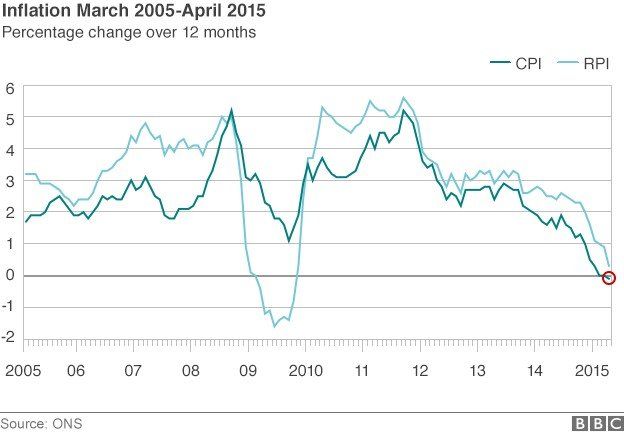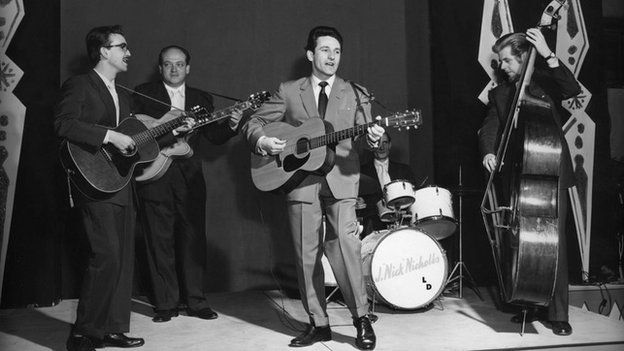
UK inflation rate turns negative
UK Consumer Prices Index (CPI) inflation turned negative in April for the first time on record, falling to -0.1%, official figures show.
It is the first time CPI has turned negative since 1960, based on comparable historic estimates, the Office for National Statistics said.
The biggest contribution to the fall came from a drop in air and sea fares.
The Bank of England has previously warned that inflation could turn negative for a brief period this year.
Chancellor George Osborne said the fall in the inflation rate was only temporary.
"We should not mistake this for damaging deflation," Mr Osborne said in a statement, adding that the lower cost of living driven by last year's fall in oil prices would be a welcome relief for family budgets, in an environment in which average wages were finally beginning to rise.
"Of course, we have to remain vigilant to deflationary risks and our system is well equipped to deal with them, should they arise," he added.

The latest inflation figure means that a basket of goods and services that cost £100 in April 2014 would have cost £99.90 in April this year.
The last time CPI inflation turned negative, according to estimates by the ONS, was March 1960, when prices fell 0.6%.
Inflation as measured by the Retail Prices Index (RPI) in April remained unchanged from the month before at 0.9%.
'Mild and benign'
The latest inflation figures show that transport costs were nearly 0.5% lower in April than the same time a year ago, while food was 0.32% cheaper.
Ian Stewart, chief economist at Deloitte, said the fall was "likely to prove short-lived and positive for growth".

The last time inflation turned negative in the UK, Lonnie Donegan (centre) was at number one in the music chart with the song My Old Man's a Dustman
"Falling prices raise consumer spending power and help keep interest rates low. This looks like the mild and benign variety of deflation, which is good news for consumers and for growth," he said.
Andrew Sentance, senior economic adviser at PricewaterhouseCoopers and a former member of the Bank of England's Monetary Policy Committee, said he did not expect the fall in prices to be sustained.
"Once the impact of the big drop in oil prices drops out of the annual inflation rate, it will move back up to 1-2% over the next year or so. With wage inflation picking up, we may soon be considering the prospect of above-target inflation," he said.
"In the meantime, flat or slightly falling consumer prices are good for growth, boosting real consumer spending power. So a temporary period of slightly negative inflation can be good for the UK economy."

Analysis: Anthony Reuben, BBC head of statistics
Almost nothing changed between March and April's inflation figures.
The ONS says that the thing that did move, which was the price of air fares and sea fares, was depressed by the timing of Easter.
The prices that are used to calculate the CPI are collected in a few days in the middle of the month.
In 2014, Easter fell during those days, which meant transport fares were inflated.
This year it didn't, so fares were lower, which means today's tiny deflation may be seen as a technical effect.




